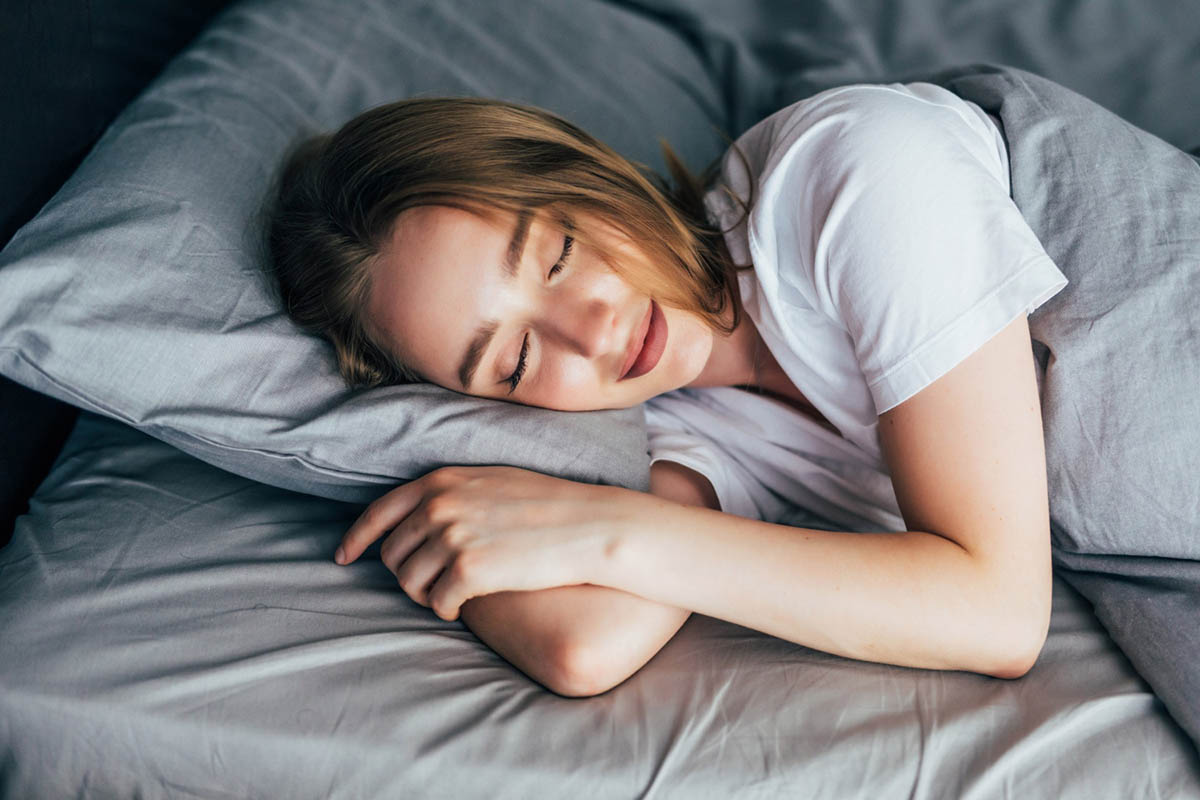Sleep is essential for our overall health and well-being, influencing everything from physical health to mental clarity. However, many struggle to maintain healthy sleep patterns, which can negatively impact their quality of life. This is where sleep hygiene comes into play.
Sleep hygiene refers to the habits and practices that help promote better sleep quality. In this article, we will explain sleep hygiene and why it matters and provide a simple, actionable checklist to improve your sleep quality. Whether you’re struggling to fall asleep, stay asleep, or feel rested after a night’s sleep, this checklist can help guide you toward better sleep hygiene.
What is Sleep Hygiene?
Sleep hygiene means the collection of habits, practices, and environmental factors that enhance or hinder sleep quality. It’s not just about going to bed at a particular time but also about creating the right environment, following a consistent routine, and making healthy lifestyle choices.
Good sleep hygiene can improve both the quantity and the quality of sleep, helping you feel more rested, energized, and productive throughout the day. On the other hand, poor sleep hygiene can lead to insomnia, daytime fatigue, and other sleep-related issues.
Why Sleep Hygiene Matters
Proper sleep hygiene is crucial for health and wellness. Sleep affects nearly every aspect of physical and mental health, from boosting the immune system to improving cognitive function and memory. It also plays a vital role in mood regulation and maintaining emotional health.
Most adults need at least 7 hours of sleep each night, but one in three American adults doesn’t sleep the recommended amount. This report describes sleep difficulties in U.S. adults using data from the 2020 NHIS. Overall, 14.5% of adults had trouble falling asleep, and 17.8% had trouble staying asleep. These statistics highlight the importance of sleep hygiene in combating common sleep problems.
If you struggle with sleep issues, OrMobility Physical Therapy offers effective strategies for achieving better sleep through personalized health and wellness coaching.
Signs of Poor Sleep Hygiene
Poor sleep hygiene can be subtle, making it difficult to recognize its impact on your overall well-being. If you consistently struggle to get restful sleep, it may be time to assess your habits and routines. Seeking expert advice, such as health and wellness coaching, can be a valuable tool in identifying poor sleep patterns and developing better habits. Here are some common signs to look out for:
Difficulty Falling Asleep
If you stare at the ceiling for long periods and cannot drift off, it might be a sign that your environment or bedtime routine isn’t optimized for sleep. Distractions such as bright lights, noise, or overstimulation before bed can make it harder for your body to transition into a restful state.
Frequent Sleep Disturbances

Waking up several times during the night can disrupt your sleep cycle, making you groggy the next day. These disturbances may be caused by environmental factors or unhealthy sleep habits, such as consuming caffeine late in the day or using electronics before bedtime.
Daytime Sleepiness
Persistent fatigue during the day, even if you’re spending adequate time in bed, suggests that the quality of your sleep may not be sufficient. This can impact your concentration, decision-making, and mood, making it harder to perform daily tasks effectively.
Lack of Consistency in Sleep Quantity
If your sleep schedule fluctuates regularly, your body may struggle to establish a stable rhythm, affecting overall sleep quality. Irregular sleep patterns can leave you feeling more fatigued and less refreshed, regardless of how long you’re in bed.
Lack of Consistency in Sleep Quality
Even if you’re getting sufficient sleep, inconsistent sleep quality can leave you feeling unrested. Tossing and turning throughout the night or waking up frequently can be signs that your sleep hygiene needs attention to help you wake up feeling rejuvenated.
The Simple Sleep Hygiene Checklist
A good sleep hygiene checklist includes maintaining a consistent sleep schedule, creating a relaxing bedtime routine, and cultivating healthy daily habits. By following these tips, you can improve both the quantity and quality of your sleep, helping you feel refreshed each day. If you’re ready to start improving your sleep habits, request an appointment for a consultation and begin your journey to better sleep today.
Maintain a Consistent Sleep Schedule
Sticking to a regular sleep schedule helps train your body to recognize when it’s time to rest and when to be alert. This consistency can improve the quality of your sleep and ensure you wake up feeling energized each morning.
Establish a Relaxing Bedtime Routine
A calming pre-bedtime routine signals your body that it’s time to wind down. This can include reading a book, taking a warm bath, or practicing relaxation techniques like deep breathing or meditation. Avoid stimulating activities like working or watching intense TV shows that can keep you awake.
Create a Sleep-Friendly Environment
Your sleep environment plays a significant role in your sleep hygiene. Ensure your bedroom is dark, quiet, and calm, as these conditions are most conducive to sleep. Consider using blackout curtains, white noise machines, or fans if needed.
Cultivate Healthy Daily Habits
Your daytime activities are crucial in shaping your sleep patterns at night. Adopting healthy habits throughout the day can set the foundation for better sleep and improved overall health.
Engage in Regular Exercise
Exercise promotes better sleep by helping you fall asleep faster and enjoy more profound rest. However, try to avoid intense workouts right before bed, as they can make it harder to fall asleep.
Get Daylight Exposure
Sunlight exposure during the day helps regulate your circadian rhythm and enhances sleep quality. Aim to get at least 20–30 minutes of natural sunlight daily, especially in the morning.
Avoid or Reduce Nicotine, Caffeine, and Alcohol
Nicotine, caffeine, and alcohol are stimulants that can interfere with your ability to fall and stay asleep. Try to avoid these substances, especially in the afternoon and evening.
Don’t Dine Late
Eating large meals before bed can cause indigestion, which can disrupt sleep. Try to finish eating at least two to three hours before going to bed.
Limiting Screen Time Before Bed
The blue light emitted by screens on phones, tablets, and computers can interfere with your body’s production of melatonin, a hormone that helps regulate sleep. Avoid screens at least 30 minutes to an hour before bed.
Address Stress and Anxiety
Stress and anxiety can make it difficult to fall and stay asleep. To calm your mind before bed, try practicing relaxation techniques like deep breathing, journaling, or mindfulness.
Common Sleep Hygiene Mistakes to Avoid
Even minor missteps in your sleep routine can disrupt your sleep quality. Avoiding these common sleep hygiene mistakes can help create a more restful and restorative nightly routine.
- Staying in bed when you can’t sleep: If you cannot fall asleep after 20 minutes, staying in bed can cause frustration and make it even harder to rest. Instead, try getting up and engaging in a calm, relaxing activity until you feel sleepy again.
- Napping late in the day: While naps can be beneficial, taking them too late can interfere with your ability to fall asleep at night. Aim to nap earlier in the day to avoid disrupting your nighttime sleep cycle.
- Ignoring sleep disruptions: Frequent sleep disruptions may signal an underlying sleep disorder that needs attention. If you consistently struggle with sleep, seeking guidance from a healthcare professional to address the issue is essential.
Is Sleep Hygiene the Same for Everyone?

While the basic principles of sleep hygiene apply to most people, individual needs may vary. For example, children have different sleep requirements than adults, and people with certain health conditions may need to adjust their sleep habits. For children, a sleep hygiene checklist might include earlier bedtimes and limiting screen time before bed. Tailoring sleep hygiene practices to your needs for optimal results is essential.
Conclusion
Incorporating good sleep hygiene practices into your daily routine can profoundly impact your sleep quality and overall health. By establishing a consistent sleep schedule, creating a calming bedtime routine, and adopting healthy lifestyle habits, you can enjoy more restful nights and wake up energized and refreshed for the day ahead. Prioritizing sleep hygiene is a simple yet powerful way to enhance your well-being and maintain a balanced, healthy lifestyle.
FAQs
What are sleep hygiene requirements?
Sleep hygiene requirements involve creating a routine and environment that promotes restful sleep. This includes going to bed and waking up at the same time each day, engaging in relaxing pre-sleep activities, and ensuring your sleep environment is conducive to rest.
What is sleep hygiene protocol?
Sleep hygiene protocol includes guidelines designed to improve sleep quality by establishing healthy habits. These include limiting stimulants like caffeine and nicotine, avoiding screens before bed, and effectively managing stress.
What are two good sleep habits?
Two good sleep habits are maintaining a consistent bedtime and wake-up time to regulate your body’s internal clock and creating a relaxing bedtime routine, such as reading or meditation. These help signal to your body that it’s time to wind down and prepare for sleep.


